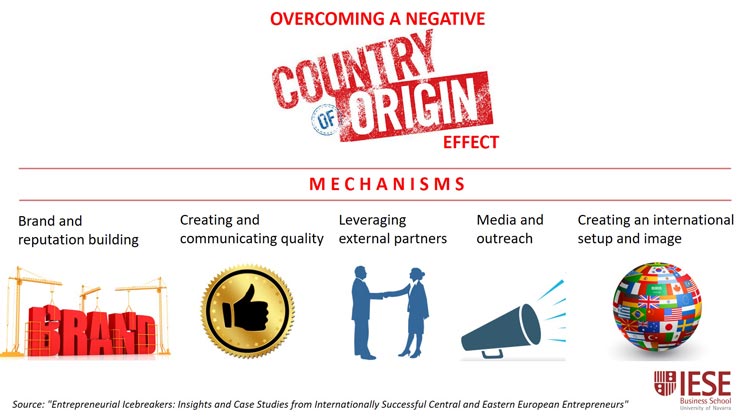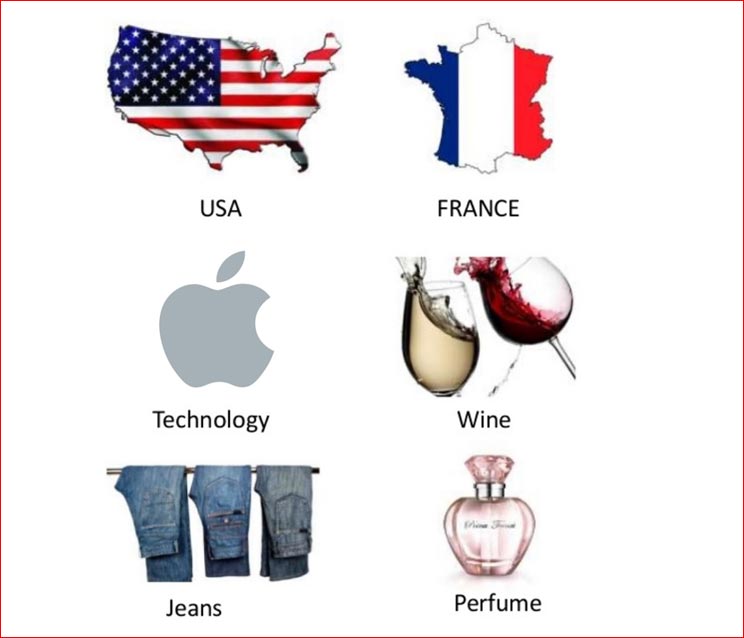In 1887, the English government passed a law requiring products manufactured outside of England to be labeled with their country of origin to protect British products from foreign copycats of lower quality. Still today, the label “Made in…” likely has one of the most significant impacts on people’s perceptions, value attribution and purchasing behavior across product categories, both positively and negatively.

As more manufacturing, has moved to developing countries, even brands that are among the strongest in the world – such as Apple – fear the (negative) impact of the country of origin effect and print “Designed by Apple in California”, before adding the “Assembled in China” label.
Certain countries stand for excellence in specific product categories, such as the U.S. for technology or France for wine, influencing strongly consumers’ perception of a company’s products and services depending on where it comes from.

Thus, while companies from certain countries might benefit from a positive country reputation, startups from emerging economies or transition markets that have not yet built up a strong track record in any product category, should deal with a negative country-of origin (COO) effect, or at least, compete with leading economies with a positive COO effect. In addition, dealing with liabilities of newness and the challenges that internationalization brings by itself can make this situation extremely difficult.
What can these startups do to survive? Based on our research on startups from post-Soviet economies in Central and Eastern Europe and Russia the 1990’s, these are the mechanisms that they can use:
- Build a brand and increase reputation: build credibility delivering strong value propositions and involve reputable stakeholders.
- Focus on high quality and communicate the achievements: continuously improve business excellence and do marketing about it. Excelling on an attentive customer service is key to break negative expectations. The mix of high quality, strong commitment to fulfill clients’ needs, increased flexibility and competitive pricing will make a difference.
- Leverage external partners: Although companies need to be aware of the costs that might come along, leveraging with external stakeholders is a powerful approach. It can be direct -for example by launching joint ventures, strategic alliances or partnering with resellers- or indirect in the form of brand spillover.
- Use media and outreach: in order to gain trust, startups can seek positive endorsements of well-known reference clients, gain international visibility by attending fairs and conferences, win awards and prestigious global competitions or become member of organizations and associations to meet potential partners and clients.
- Create an international setup and image: A further attempt is to shrug off or “dilute” the national roots of a startup if it is burdened with a negative COO effect developing an international company. Establish real operations in foreign leading markets in your industry, and cultivate an international image.
As can be seen above, there are multiple ways to tackle the COO effect. Based on our research, for the transition entrepreneurs the credibility building is most effective through leveraging stakeholders. Real cases prove that it is the fastest way to succeed in international markets, however, potential disadvantages need to be considered, evaluated and mitigated as far as it is possible. Obviously, each case is different and there are no standard answers to different realities, so entrepreneurs need to experiment with the mechanisms and see their impact as they forge ahead.
In our next post, we display Growth strategies and internationalization
Prats, Mª Julia; Sosna, Marc; Sysko-Romanczuk, Sylwia, “Entrepreneurial Icebreakers: Insights and Case Studies from Internationally Successful Central and Eastern European Entrepreneurs”, UK: Palgrave Macmillan, 2014. Buy the book here.





good post
thanks for sharing this
Thanks for your useful post. Great work.